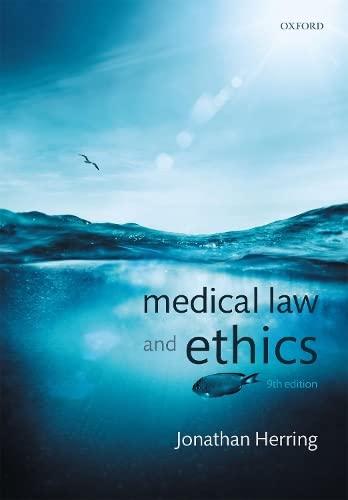Question
someone with a good heart to assist me please Similarly, heat being transferred via conduction tends to travel in all directions, and dominantly flows along
someone with a good heart to assist me please
Similarly, heat being transferred via conduction tends to travel in all directions, and dominantly flows along object parts with higher thermal conductivity. Heat being transferred via convection can also generally travel in any direction if there is a current traveling in that direction (e.g. a current of air created by a fan). However, in typical situations on earth, heated fluid tends to convect upwards. This is because heated fluids tend to be less dense than the surrounding colder fluid, and therefore are pushed up and out of the way as gravity pulls harder on the colder, denser pockets of fluid.
With these basics in mind, let's turn to the campfire. The campfire is emitting heat through all three modes. Since air is a poor thermal conductor, you won't receive much heat from the campfire via conduction unless you stick your hand in the fire. Therefore, assuming you are sitting several feet away from the campfire, we can ignore conductive heat transfer. The thermal radiation from the fire spreads out in all directions and is able to reach you. This thermal radiation is mostly in the form of infrared waves and visible light. In contrast, the campfire heat transferred via convection shoots straight up into the sky and never reaches you (i.e. hot air billows upwards). Therefore, when you are sitting beside a campfire, almost a hundred percent of the heat that you receive from the fire is transferred through thermal radiation. This is why the side of your body facing the fire gets hot while the side facing away from the fire stays cold. Thermal radiation is a form of light, and light travels out in straight lines. The side of your body facing away from the fire is literally in shadow and cannot receive the thermal radiation.
questions
1.wha are the guidelines of the Performance share in cost accounting that monitor the rewards for maintaining a consistency?
2.distort the meaning and the regulation of the stock options normal accounting schemes and relate it to the cost accounting frameworks
3.exp-lain the major implications of the managerial schemes of incentives in the decentralization of activities in cost accounting
4.explain the goal of the capabilities in the seeking for the assurance of the processes facet in cost accounting
5.elaborate the necessary elemental subdivisionsof the plan and manage the enterprise and how it is accounted fromin cost accounting
6.discuss the stakeholder contribution lengths and levelness regardingthe organization wants from those stakeholders for cost accounting purposes
7.which parameters can be used to filter strategies prism facets for the leafy identifiers oflong term goals of cost accounting as an objective of a firm?
8.propose the indictors of the stakeholder satisfaction according to the the facets of the prism and analyze how to initiate the majority of employees significancewhile conducting cost accounting
9.explain what isusually meant by the Dimensions/Targets while analyzing the upstream determinants for costing?
10.from the performancepyramid of how cost accounting is effective, explain the level of the opyrmid significancein sum totaling allthe other reasons for such
Step by Step Solution
There are 3 Steps involved in it
Step: 1

Get Instant Access to Expert-Tailored Solutions
See step-by-step solutions with expert insights and AI powered tools for academic success
Step: 2

Step: 3

Ace Your Homework with AI
Get the answers you need in no time with our AI-driven, step-by-step assistance
Get Started


